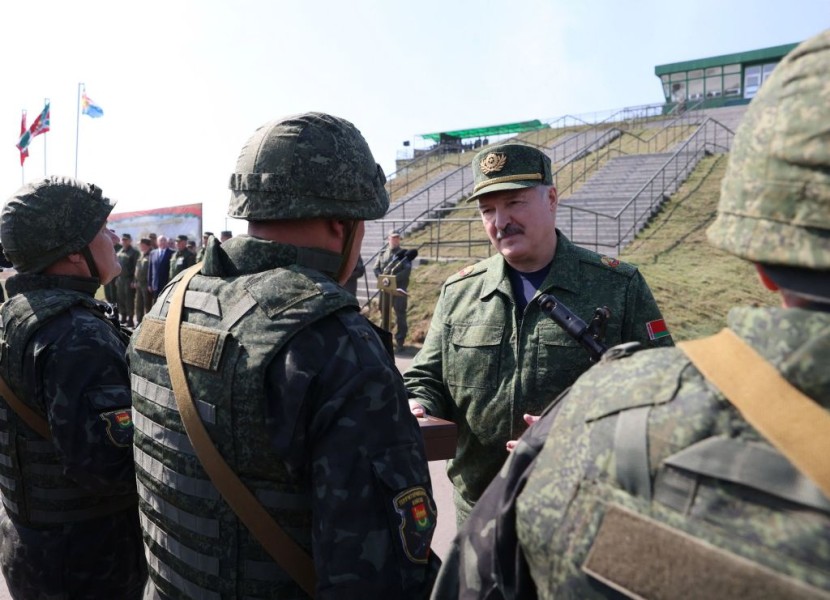
Belarus may join Russia's invasion of Ukraine on Monday, following a referendum on Sunday that approved a new constitution that dropped the country's non-nuclear status that permits Russian nuclear weapons within Belarusian territory, raising fears for a possibility of World War 3.
The White House official, who requested anonymity, claimed that Minsk, Belarus' capital, has already become an extension of Russia. Though the official did not provide details on the deployment of military forces.
For the first time since the Soviet Union fell apart, the new constitution of Belarus might allow nuclear weapons to be used in the country.
Russian Nukes Now Allowed in Belarus
On Sunday, Belarus President Alexander Lukashenko issued a warning at a voting precinct that he might ask Russia to bring back nuclear weapons to his country.
The Nuclear Threat Initiative reported that Belarus acquired several Soviet nuclear warheads after the USSR broke up in 1991, which is then handed to Russia, per France 24.
Lukashenko remarked that the planned heavy economic sanctions of the United States and its allies against Russia are "worse than war." "This is pushing Russia into a Third World War. We need to be restrained here so as not to get into trouble. Because nuclear war is the end of everything," he said.
Belarusians voted to allow the state to permanently host nuclear weapons and the Russian military as part of a package of constitutional revisions that also saw President Alexander Lukashenko's tenure prolonged.
According to Russian news sources, the president of the Central Election Commission, Igor Karpenko, said 65.16 percent of referendum participants voted in favor of the constitutional reforms, while 10.07 percent voted against them. According to Karpenko, 78.63 percent of eligible voters turned out to vote.
The changes must receive at least 50% of the vote and a turnout of more than half of the electorate to become valid.
After historic protests against his questionable re-election in 2020, Lukashenko, who has been in power since 1994, promised a referendum.
The revisions in Belarus' constitution also provide immunity to past leaders who committed crimes during their term.
On the other hand, the West has announced that it will not recognize the referendum's results, which caused anti-war protests in many areas, according to Reuters.
Though it has not been directly involved in the Russia-Ukraine conflict, Belarus has been supporting Russia's actions. Weeks before the invasion, the two countries conducted military exercises near the Ukrainian border.
Ukrainian security authorities reported that the rocket that hit Zhytomyr Airport, which is 93 miles west of Kyiv, was launched from the Belarusian dominion.
According to Ukrainian intelligence, 'special ops' soldiers have been detected boarding planes within Belarus preparing for a big attack, per Daily Mail.
Russia-Ukraine Talks Has Started
As of this present writing, the dialogue between Ukraine and Russia has just begun at the Belarussian border. The information came from Ukrainian presidential adviser Mykhailo Podolyak according to Al Jazeera.
The goal of the talks, according to Kyiv, is an immediate truce and the pullout of all Russian troops from Ukraine.
The development came after the call for international unity made by Dutch Prime Minister Mark Rutte. He the parliament that in order to stop Russian aggression, the Netherlands must join its partners and allies.
According to Filippo Grandi, UN's high commissioner for refugees, more than 500,000 people have fled Ukraine since the Russian invasion started on Feb. 20.
Related Article : US Banks Prepare For Russian Cyberattacks Amid New Sanctions on Moscow
© 2025 HNGN, All rights reserved. Do not reproduce without permission.








